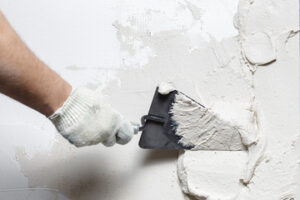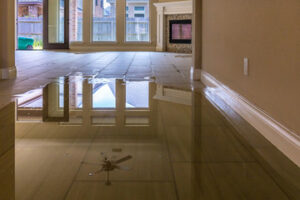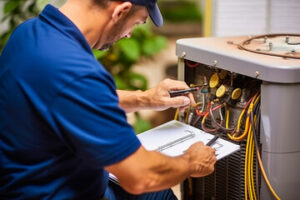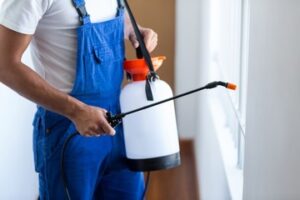A roof does a lot more than just sit on top of a home and keep out rain. It plays a vital role in preserving a building’s structural integrity and keeping its inhabitants safe.
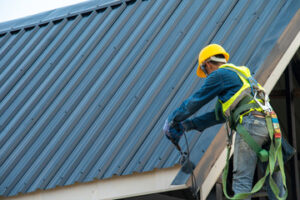
A standing seam metal roof’s raised panel seams are a major part of its effectiveness, preventing water penetration. The fastening clip and female leg of the panel are tightly seamed together using mechanical locks. For professional help, contact Boston Roofing CO.
A slate roof is a classic roofing option that’s often praised for its head-turning good looks. It’s also known for its durability, longevity, and value as a home or commercial property owner. It can even help lower energy costs.
Slate is a natural product that’s formed over millions of years in sedimentary rock layers on ocean and lake floors, or in riverbeds. Once it’s mined, the slate is hand split and sized to meet individual project specifications. This makes each slate unique. It’s a beautiful and long-lasting roof that requires very little maintenance or repairs over its lifespan.
The density of slate also helps it resist fire and insulate your home. This dense material also prevents hot air from escaping your attic during the summer, resulting in lower energy bills. In fact, you may be able to save up to 10% on your energy bills each year with this dense material.
Another benefit is that it’s an eco-friendly roofing material. Slate has a low environmental footprint due to its natural formation and minimal impact during production. In addition, it’s also recyclable. Its durability also extends the life of your roof and reduces re-roofing costs. It can withstand high winds, hail, fire, and acid rain as well as resist degradation over time.
It is more expensive than other roofing materials, however, because of the labor and special tools needed to install it. It can also be fragile, which can lead to damage during installation. It’s important to work with a reputable roofer that’s experienced in installing slate roofs.
A new and popular alternative to traditional slate is synthetic slate, which has gained popularity for its cost-effectiveness. It’s a great choice for homeowners that want the look of a slate roof but don’t have the budget to invest in a costly natural product. DaVinci’s synthetic slate is available in multiple styles and colors, which have been fortified with effective UV stabilizers to prevent fading. It’s also lightweight, which helps to keep your heating and cooling bills lower and is certified as a cool roof by the EPA.
Concrete Tiles
Concrete tiles are a durable roofing material that can last up to half a century or more with minimal maintenance. They offer superior durability against harsh weather conditions, including heavy rain, hail, snow and high winds. They also are an energy-efficient option, allowing them to reflect heat from the sun during the day and keep your home cooler. They are non-combustible and offer exceptional resistance against fires.
One of the most popular roofing materials, concrete tile is available in a variety of surface appearances, edge treatments and profiles/shapes to complement any type of building design. They also come in a wide range of colors and can emulate other popular roof coverings, such as slate or clay, to achieve the look you desire.
Unlike other roofing materials, concrete tiles don’t require periodic replacement, as they are highly resistant against rot and insects. However, they are prone to cracking due to their weight and can be damaged by debris like fallen branches and falling tree trunks. In addition, they absorb water and can become prone to algae, moss and mildew growth. Because of these factors, it is important to schedule routine inspections by a professional to avoid costly repairs.
The biggest drawback to concrete tiles is their higher upfront cost than other roofing materials. However, they are a long-term investment that can help lower your energy costs and boost your home’s value. Moreover, they are an excellent choice for regions that experience severe weather or frequent wildfires.
While cedar is a beautiful roofing material, it does need regular upkeep to stay in good condition. Besides routine cleaning, shingle maintenance includes the application of protective sealants and regular inspections. Due to its flammability, cedar isn’t as fire-resistant as other roofing materials.
Cement effect tiles resemble the natural and untreated look of cement, giving your home a minimalist style with an industrial feel. Often used in modern and contemporary designs, these tile designs offer a perfect balance between elegance and functionality and blend with other interior elements. Novoceram offers a vast collection of these cement effect porcelain stoneware to enhance any space with the beauty and strength of nature.
Clay Tiles
Throughout history, homeowners have cherished clay roof tiles for their beauty and robust performance. Their durability and longevity make them a great choice for Arizona homes, and their natural thermal properties can reduce energy costs by keeping the house cool in the summer and warm in the winter.
Like other roofing materials, clay tiles are available in a variety of colors, shapes and sizes. They can be molded and fired to create unique looks, and the tiles are often interlocking to provide extra structural strength. These unique features allow homeowners to achieve a distinctive look that adds value to their home and makes it easier to stand out from other houses on the block.
A clay tile roof is made up of a layer of protective underlayment, followed by the tiles, which are placed in overlapping rows and fastened with nails or clips. A waterproof sealant is also applied to ensure a watertight barrier against leaks. Flashing is installed around chimneys, skylights and other roof protrusions to prevent water from seeping into the structure of the home.
Clay tiles are more expensive than other roofing options, and installation is labor-intensive. A square foot of clay tiles is more than twice as heavy as asphalt shingles, so it’s important to have your home evaluated by a professional to make sure it can support the additional weight.
Because of their weight and brittleness, clay tiles must be handled carefully, which requires specialized training to avoid damage. During maintenance, a roofing company that specializes in handling these delicate tiles can perform cleaning and repairs without damaging the roof or the tiles themselves.
One of the biggest benefits of a clay tile roof is that it’s fire resistant. It carries a Class A fire rating, the highest possible rating, and can protect your home from the threat of wildfires and other fire hazards. As a result, a clay tile roof is an excellent choice for homeowners who live in regions that are susceptible to wildfires.
Metal
A metal roof is a beautiful, durable and energy-efficient alternative to traditional shingle roofing. It reflects radiant heat away from the building, which reduces energy costs in summer and winter. It is also highly fire resistant, lasts for 50 to 70 years on average, and requires minimal maintenance and repair. It is eco-friendly and 100% recyclable at the end of its life, reducing your home’s carbon footprint.
Steel is the most common material used in metal roofing. It is available in a variety of finishes to suit different aesthetic preferences. Stainless steel is an option that combines durability with a modern look and offers corrosion resistance to harsh environments. Corrosion protection can be provided by a non-corrosive coating or sacrificial anode metals like zinc. Galvalume is a metal roofing option that contains both steel and aluminum. It has a high strength to weight ratio and is designed for coastal areas where salty air is present. Galvalume can be coated with aluminum or zinc, which will protect the steel core from corrosion.
If you’re looking for a more contemporary look, you may want to consider copper or zinc roofs. These materials have self-healing properties that develop a protective layer over time. They are a good choice for homes with an eco-friendly attitude and can add a distinct aesthetic to historic or upscale residences. These roofing options have a higher upfront cost than other metals, but they are an excellent long-term investment for homeowners seeking longevity and a distinct style.
While the initial investment for metal roofing is greater than shingles, it will save you money in the long run on both heating and cooling bills. Metals also shed snow and ice much more easily than other roofing materials, reducing the risk of damage to the roof structure and siding. In addition, metal is extremely energy efficient and can be insulated to provide additional energy savings.


